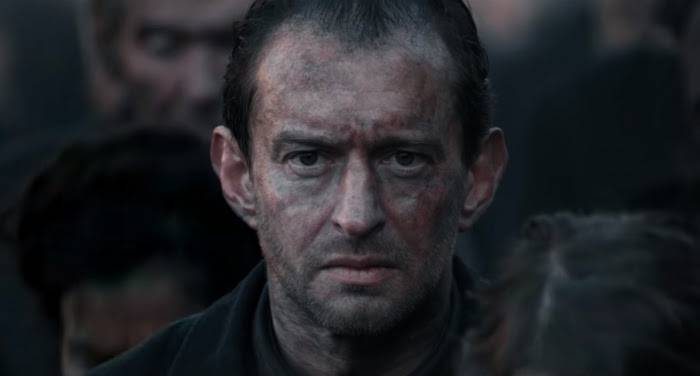Audience from among veterans of World War II, representatives of the foreign diplomatic corps accredited in Washington, State Department officials, employees of the Holocaust Memorial Museum in the US capital has been invited to special display of the feature film "Sobibor" in the Embassy. Konstantin Khabensky also spoke with the audience after the premiere.
"Since it was my debut in directing, it was probably even harder for me than for those who had already acted as a director in terms of combining [with the performance of the main role]," said Konstantin Khabensky. In his opinion," it is very important to show [the film] in Washington and New York", where many immigrants from Russia and the republics of the former USSR live.
"I think that human history can be understood in any language, it is understandable, there is nothing to explain," said Konstantin Khabensky, speaking of the picture itself. – "Either you see and sympathize, and you participate, or you sit and eat popcorn. Ithinkourstoryisthefirstoption."
On the occasion of the film demonstration an exhibition dedicated to the feat of Lieutenant Alexander Pechersky was displayed in the representative building of the Embassy. The exposition was prepared with the participation of the Russian Military Historical Society. It presents copies of archival documents, including the Sobibor concentration camp plan and the scheme for the breakthrough of prisoners through its protection, executed by Pechersky in 1944 by hand from memory.
The Еmbassy is going to organize a separate show of the film the other day for American students.
The film "Sobibor" was created with the support of the Russian Military Historical Society. The author of the film idea is the Minister of Culture of the Russian Federation - Vladimir Medinsky.
The film "Sobibor" tells us about a revolt of prisoners in the concentration camp of the same name, located in the territory of occupied Poland, and about the heroic deed of the Soviet officer Alexander Pechersky (1909-1990), who raised the rebellion there. The film shows the events that preceded the rebellion of the prisoners, and the revolt itself.
The Sobibor Concentration Camp operated from May 1942 to October 1943. During this time, from 150,000 to 250,000 Jews from Poland and other European countries were killed there, according to various sources. The camp ceased to exist in 1943 after the uprising of the prisoners, led by Alexander Pechersky, a lieutenant of the Soviet army (the role of Pechersky was played by Konstantin Khabensky).
The Pechersky’s rebellion was the first during the Second World War to be a successful revolt and the only one so massive in terms of the number of participants. It was possible to escape almost all 300 prisoners who put their lives on the line.
Based on the TASS materials
Reference about the activities of The Russian Military Historical Society
